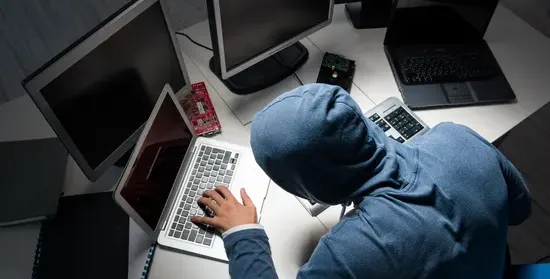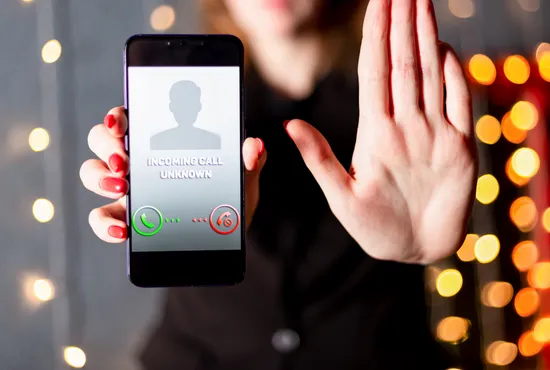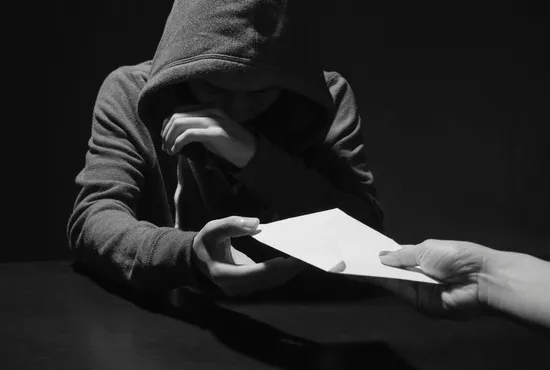
How to identify a scammer?
Every day we are exposed to all sorts of scams, mainly online. Whether you're scrolling Facebook, looking for love on a dating site or paying bills. The situations are different, but the patterns by which scammers operate are similar. It's worth knowing the ways they work to avoid being scammed and losing money.
Particularly watch out for: energy scams, romance scams, investment scams, social media scams, banking scams and crypto scams.
What to look out for?

There are a few key things to look for when trying to identify a scammer:
- First, scammers will often promise something that sounds too good to be true. They may claim to have inside information about a surefire investment, or offer to sell you an exclusive product or service at an unbeatable price. Be wary of any offer that seems too good to be true.
- Scammers may try to pressure you into making a decision quickly, before you have time to think about it or do your own research. They may say that the offer is only available for a limited time, or that supplies are limited and you need to act now to get in on the deal. Again, beware of any pressure tactics and take your time in making any decisions.
- Scammers will often ask for payment upfront, before you receive any goods or services. They may claim that they need the money to cover taxes or fees, or that the payment is required to secure the deal. Be very wary of anyone who asks for money upfront without delivering anything in return.
- Some scammers will pose as representatives of legitimate companies in order to get your personal information. They may contact you through unsolicited emails or phone calls, and may even go so far as to set up fake websites that look like the real thing. These scammers then use your information to commit identity theft, or to sell it to other criminals.
What specific behaviours of scammers should raise suspicion?

1. The majority of fraud takes place online. Pay particular attention to the messages and emails you receive. All it takes is your moment of inattention, a click on a link and the scammer is already up and running.
2. You need to know that most scammers know very well what they are doing, their actions are deliberate and professional. For example, the emails in which they impersonate different people or institutions have their logo and brand colours. At first glance it is hard to see that it is not a real message. The key is to keep a cool head and check the email address from which it was sent in the first place. This is usually enough to know that it is a scam.
3. Pay attention to how the email or text message is addressed. Usually scammers will not find your name and address it generally.
4. Fraudsters operate in a similar way - their tactics are based on emotion. You may notice two ways of conversation. In the first, at the beginning of the conversation they will do their best to inspire your confidence and make you the best possible offer, while telling you that it is only for you and is time-limited. They will do everything to convince you of this.
The second technique is to be aggressive and intimidating.
Either of these is bad and if you see your conversation heading towards this - hang up immediately.
5. If, for example, someone contacts you on social media and wants to talk about investments, he never uses his real name, but his account and profile will look very authentic. It looks as if he has real family and friends. This is all to lull you into suspicion. When you arrange a video call, he will never turn on his camera, but he will show you all sorts of certificates and assurances to let you know it is all real. Once again, online scammers are absolute professionals and it is only up to you how much you allow them to do. The mere fact that someone hooks you up randomly on the internet should light a red light in your head.
If you are looking for your other half on the internet, want to invest money or change your phone plan always do your own research and be the person who contacts companies and institutions. This is the only way to minimise fraud. In any other case - don't believe anyone. It may not be right, but we have come to live in such times that any potential casual contact should be treated as a scam in advance.
Protect yourself from these types of scams

- never give out your personal information to someone you don't know and trust;
- if you're not sure whether a company is legitimate, do some research before you provide any information;
- if you do receive an unsolicited email or call from someone claiming to be from a company, hang up and call the company's customer service number yourself to verify the claim.
- remember that you should never have to pay to receive a prize or award - if someone tells you otherwise, it's a scam;
- never click on any links without thinking. Always check everything and verify all information;
- install a good anti-virus programme to detect the danger in an emergency;
- protect your passwords and personal data;
- never send money just because someone asks you to. Always check every piece of information. Most companies will never ask you to do this. If someone on the phone asks you to send money - hang up immediately. Likewise, if you receive a payment link in an email - delete it immediately;
- if your phone allows you to block phone numbers, always use this feature.
If you encounter any of these tactics, it may be a scam. Recognizing these common signs of a scam could help you avoid falling for one. It is important to remember that legitimate organizations will never ask you to disclose personal or financial information unless you initiated the contact and are confirming your identity. If something feels off, take a step back and do some research before providing any information. Check out the organization's website or call its customer service number directly to confirm that it is legitimate.
If your suspicions are confirmed and you think someone is trying to scam you, alert local law enforcement immediately. Be sure to keep all the details and records of all communication with the perpetrator so you can share them with officials.
What should I do if I have been scammed?

If you have given your personal details or transferred money to random people and become a victim of fraud - read this article. Here you will find tips on where to report fraud and what to do about it.
If you have any doubts, even the smallest ones, about the intentions of the person on the other side - ask and seek help. Together we can stop fraudsters!